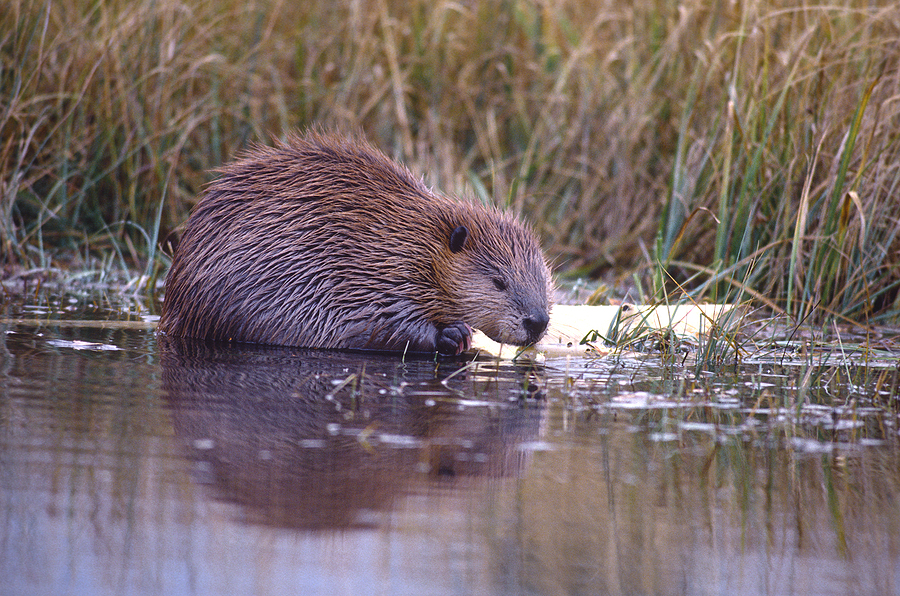Beavers, often referred to as nature’s engineers, play a significant role in shaping our waterways and creating rich habitats for a myriad of wildlife species. Their tireless dam-building activities are not just a marvel of natural engineering, but they also have profound implications for water quality and biodiversity. As beavers go about their routine, they inadvertently lay the groundwork for an ecological oasis. However, beaver activity is not without its challenges, posing specific control considerations.
This blog post will delve into the world of these industrious creatures, exploring both the positive and negative impacts they have on water quality and wildlife habitats. Let’s dive into the fascinating world of beavers and their far-reaching effects on our environment.

Building Dams and Creating Wetlands
Beavers are renowned for their ability to construct dams, which serve as crucial barriers in controlling water flow. These structures create ponds and wetlands, altering the landscape significantly. The resulting habitats are a hotspot for biodiversity, attracting various species of amphibians, birds, mammals, and insects. Waterfowl such as ducks and geese thrive in these wetlands, making them ideal breeding grounds and providing an important food source for other animals.
The pools of water created by beaver dams also act as a natural filtration system, trapping sediment and pollutants that would otherwise enter downstream water bodies. As the beavers continue to build and maintain their structures, they create a complex network of channels and ponds that slow down the flow of water, allowing it to percolate into the ground. This process helps replenish groundwater reserves, which are crucial for sustaining both plant and animal life.
Challenges Posed by Beaver Activity
While beavers’ influence on creating diverse habitats is undeniable, their activities can also pose challenges for human communities. The dams they build may cause flooding in nearby areas, especially during heavy rains or snowmelt. This can lead to damage to infrastructure, such as roads and buildings, and create safety hazards for people living in these areas.
Moreover, the altered water flow caused by beaver dams can have adverse effects on fish populations by preventing their migration and disrupting their natural breeding patterns. For commercial fisheries, this can have significant economic ramifications. In agricultural regions, beaver dams may also contribute to waterlogging, hindering crop growth and productivity.
Managing Beaver Populations
With the growing recognition of beavers’ positive impact on water quality and wildlife habitats, there is a movement towards more sustainable ways of managing their populations. Instead of resorting to trapping or killing these animals, communities are exploring non-lethal methods of beaver control, such as installing flow devices that regulate water levels and prevent flooding. They are also utilizing animal repellents and professional wildlife control service.
Educating the public about the beneficial role of beavers in creating and maintaining healthy ecosystems is also crucial. By understanding their impact, people can learn to coexist with these animals and find ways to mitigate any negative effects they may have on human activities.
Final Thoughts
From creating wetlands to filtering pollutants, beavers have a significant impact on water quality and wildlife habitats. While their activities may present challenges for human communities, there are ways to manage their populations more sustainably. As we continue to learn about these remarkable creatures, it is essential to find a balance that allows us to appreciate their contributions while mitigating any potential conflicts with human development. After all, the beaver’s impact on our environment is a vital reminder of the interconnection of all living beings and the importance of preserving our natural world.
If you have a problem with nuisance beavers, the best solution is to hire a professional critter control service. So, contact Modern Wildlife Control at 317-847-6409 for safe and effective animal trapping and removal services for all types of wildlife in Indiana, including beavers and similar aquatic critters. We serve residential and commercial clients.
Related Posts:
How to Safely Remove Beavers from Your Property
Will Beaver Dams Damage a Property?
Beaver Removal and Control Tips for Indiana Residents
